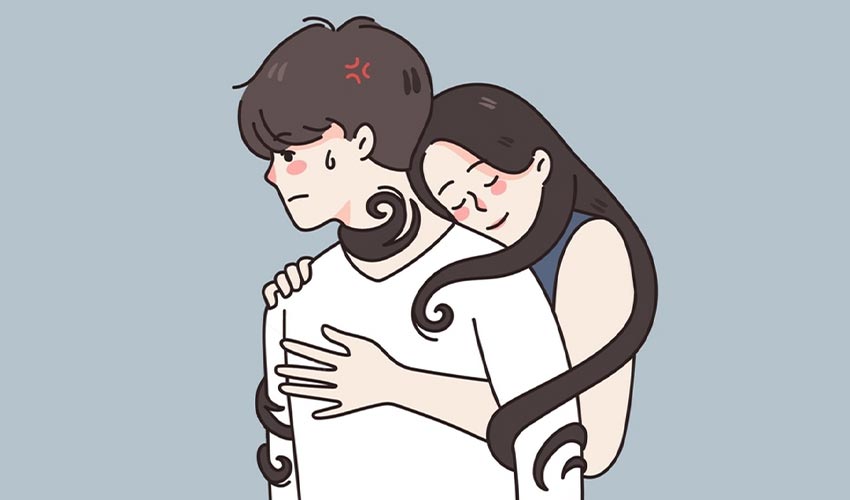Personality refers to a person’s unique manner of thinking, feeling, and acting. Experiences, environment (surroundings, life situations), and inherited characteristics all play a role in shaping an individual’s personality. Over time, a person’s personality tends to remain consistent. A personality disorder is a manner of thinking, feeling, and acting that differs from cultural norms, produces distress or impairment in functioning, and can last for a long period.
These disorders are divided into three clusters namely Cluster A, Cluster B and Cluster C.
- In Cluster A people exhibit behaviour that others perceive as strange or erratic. These unusual behaviours lead to social difficulties.
- In Cluster B there are unpredictable behaviours and people tend to react dramatically to seemingly mundane events. They tend to be impulsive and erratic.
- In Cluster C people are afraid of specific things and avoid confronting those fears. This behaviour leads to trouble in interpersonal relationships. Cluster C personality disorders are characterized by anxious, fearful thinking or behaviour. They include avoidant personality disorder, Dependent Personality Disorder (current blog) and obsessive-compulsive personality disorder.
Dependent Personality Disorder is characterized by individuals who have a strong need to be looked after by others. Those with DPD may believe they are incapable of self-care. They may struggle to make routine decisions, such as what to wear, without the support of others. A person with DPD frequently relies on family and friends to meet their emotional and physical needs. Others may label them as clinging or needy. They want comfort, reassurance, counsel, and support from others. People who do not have this illness may have emotions of insecurity from time to time. People with DPD, on the other hand, require reassurance from others in order to operate. People with this ailment generally display symptoms in their early to mid-adulthood.
Psychiatrists and psychologists in best rehabs in India use psychometric assessments to identify these personality disorders. However, a few common symptoms of DPD can be as following
How to identify DPD:
- Personal responsibility is avoided by people suffering from Dependent Personality Disorder.
- In DPD people find it difficult to be alone.
- When partnerships fail, there is a fear of abandonment and a sense of helplessness
- Intolerance of criticism is usually observed as a symptom of Dependent Personality Disorder.
- There can be pessimism and a lack of trust in oneself.
- Making day-to-day decisions is difficult for people identified with DPD even if these are everyday decisions like what to wear, without the advice and reassurance of others
- There can be submissive behavior paired with willingness to tolerate mistreatment and abuse from other people.
- There can be a tendency to be naïve and to place the needs of their caregivers above their own along with a tendency to fantasize.
Causes of Dependent Personality Disorder:
- DPD is thought to be caused by a combination of biological, developmental, temperamental, and psychological variables, while the exact reason is unknown.
- Some researchers suggest that in those who are prone to the illness, an authoritarian or overprotective parenting style can lead to the development of dependent personality traits.
- Other causal factors of this disorder for individuals can be a history of having abusive relationships, facing trauma in childhood or a family history of mood disorders such as anxiety, depression or other comorbidities.
Treatment for DPD:
- The most common treatment for DPD is psychotherapy (a sort of counseling). The purpose of therapy is to assist someone with DPD in becoming more active and independent, as well as learning to build good relationships.
- Best rehabs in India such as Veda rehab and wellness use therapies such as Dialectical Behavior Therapy combined with an eclectic approach.
- When the goal is to manage habits that interfere with functioning, short-term therapy with clear goals is preferred.
- It is often beneficial for both the therapist and the patient to focus on the therapist’s role in order to notice and address ways in which the patient may develop the same type of passive reliance in the therapy relationship that occurs outside of treatment.
- Lastly, medication may be used to help with DPD for individuals who also have other comorbidities including depression or anxiety. Medication therapy, on the other hand, does not usually address the basic issues that personality disorders produce. Hence therapy from psychologists or residential treatment in best rehabs such as Veda Rehab and Wellness is required in combination with medication. Furthermore, medications should be closely controlled because persons with DPD can get addicted to them or misuse prescription medications.
It is always advisable that one consults a doctor or another primary care provider, as well as a mental health specialist, if he has any signs or symptoms of a personality disorder. Personality disorders, if left untreated, can cause serious problems in your life, which may worsen if not treated.
Written by,
Shaili Mehta
Veda Rehab and Wellness

